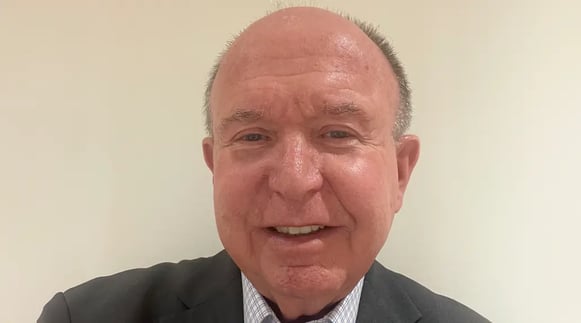Ian Miller MBE, director and board member
In our regular #MyFirstMcJob series, big wig entrepreneur remember when they were still aspiring to get noticed

Hi, Ian! Who are you and what do you do?
I'm Ian and I'm CFO at Guildhawk, NED at FACT Worldwide, member of the Board, EightAspects Inc, Strategic Advisor to Originate Inc, Founder and Director, Business Optimisation Ltd.
What was your #MyFirstMcJob?
Working in a pea factory in Dundee, when I was 16, between studying for my O Levels and Highers, putting peas into cans in a big processing plant.
How did you get that job?
They were looking for holiday workers. The pay wasn't great, but you got so many hours you could make what seemed at the time to be a small fortune. It was great fun.
What did you have to do exactly?
My first job was loading and unloading boxes of peas onto pallets to move them from one place to the other, which was great physical training. Then I was deemed responsible enough to manage the hoist. Then peas had to be lowered into this big vat in huge iron baskets. Someone was responsible for setting the timer so the peas cooked in their cans. There was a huge line of the vats against the wall. My job was to use an electric hoist that ran on a rail to lower the cans of peas into the cooking vats, then take them and put them in the cooling pond. I did that for 12 or 13 hours a day.
How long did you work there for?
For five weeks over the summer holidays, then again for two weeks over Christmas and Easter. I worked seven days a week because I needed the money!
What were the perks of the job?
You could buy things from the company store like steak pies at knockdown prices. My mother and father were very grateful and I would go in every day with their order.
What skills did you learn that you still use now?
The people I was working with took enormous pride in their job, even though they were working repetitive, low paid factory jobs. I remember the guy who showed me how to work the hoist really taking pride as he showed me how it all worked. Even though I went on to become a chartered accountant, I could not calculate my wages at the speed that these guys could, even if they didn’t have an O Level of maths between them. When it came to handing out the wages – in cash in envelopes on a Friday – these guys knew exactly what they were going to get paid. It taught me to have a huge amount of respect for people in all walks of life.
Are you still in contact with anyone you used to work with?
No. It was a pretty transient population. A lot of the hardcore people had been there for years but a lot more came and went within weeks. I think I was replacing someone who'd lasted about four weeks. Did anything funny happen? Two people had an enormous punch up on the factory floor. I saw one of them getting brained with an iron bar, which was supposed to be used to tighten the vats. The police turned up and took witness statements, so that was all very exciting.
Why is alumni important to you?
If you enjoy your time in an organisation, you're always willing to help it. I get asked by people I’ve worked with years ago if I can remember a consulting assignment, or why certain decisions were made, or if I know of candidates for roles. That can come from my personal contacts or from fellow-alumni. It’s more likely if there is a good alumni association. Successive generations of management can repeat the mistakes of previous generations. Having access to experience though alumni can genuinely help retain corporate knowledge and experience.
What would happen if you went back and did a shift in the pea factory today?
It would be interesting to see how much I remember, and how much had changed. I'm sure it’s completely automated now.
If you could go back and give yourself one piece of advice, what would you say?
Even if a job looks repetitive and boring or, if you ask a person how how the job actually works with genuine interest, the vast majority of people will respond well and explain how they work. They have pride in what they’re doing and are conscientious. So I’d say to myself: always remember that even if someone is doing what seems to be a mundane job, they may well be very happy and motivated to do well. And they can calculate their pay faster than a maths graduate. If you ask them how processes can be improved, they will often have better insight than external consultants.
When did you last eat a can of peas?
The last time my wife was away.

